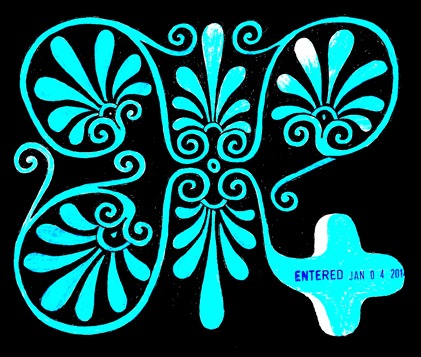March 25, 2016
March 5, 2016
Comic Tales of Sayfawayh
Sayfawayh was asked: "You who instruct the people, why do you not relate hadith?"
He said: "Write this down: 'I was informed by Shurayk on the authority of Mughira on the authority of Ibrahim ibn ‘Abdallah likewise, with the same wording.' "
"Likewise to what?" they asked him.
"That's how I heard the hadith," he said, "and that's how I relate it."
Ibn Khalaf said: One day, a man was coming from a wedding, and Sayfawayh asked him what he'd had to eat. In the middle of the man's description, he said: "If only I could swallow the contents of your stomach!"
[...]
Abu 'l-‘Abbas ibn Mashruh tells that Sayfawayh bought a quantity of flour and took it home for his breakfast, then went out to seek his evening meal. "We baked no bread," [his patrons told him], "for lack of firewood."
He said: "So did you bake any pies?"
Abu Mansur al-Tha‘alibi narrated that a man asked Sayfawayh the meaning of al-ghislīn ["suppuration"] in God's Book. He said: "God only knows. One time I put the same question to an elderly legal scholar whose family were from the Hijaz, and could not get the slightest bit from him."
Sayfawayh stopped at a graveyard while mounted on his ass. From one grave in particular the ass shied away, and he said: "This man must have been a veterinarian."
[Incorrectly,] Sayfawayh recited the Qur'anic verse (69:32): "Then set him in a chain of ninety cubits' length."
"You added twenty cubits," they told him.
"This chain was made for harlots and full-grown reprobates," he said. "For you, a ten-penny length of ribbon will suffice."
In his presence, the Qur'anic verse (10:27) was recited: "As if their faces were overshadowed by pieces of the night." Sayfawayh said: "This, by God, is what happens to people who indulge in night prayer!"
When the verse (55:58) was recited: "As if they were ruby or coral." Sayfawayh remarked: "Not like the shameless womenfolk of today!" [as if in response to 55:56 two verses prior].
Sayfawayh was asked: "When the inhabitants of Paradise crave asida, what do they do?" He said:
"God sends them rivers of syrup, wheat and rice, and they are told: 'Make it and eat it, and excuse Us from your repast.' "
From Reports of Imbeciles and Simpletons by Ibn al-Jawzi
tr. by David Larsen at 9:12 AM
Labels: Arabic prose
February 25, 2016
Names of Simpletons
Names of simpletons whose comic tales have been written up as books by unknown authors:
Comic Tales of Juha
Comic Tales of Abu Damdam
Comic Tales of Ibn Ahmar (?)
Comic Tales of Sawra the Bedouin
Comic Tales of Ibn al-Mawsili
Comic Tales of Ibn Ya‘qub
Comic Tales of Abu ‘Ubayd al-Hazmi
Comic Tales of Abu ‘Alqama
Comic Tales of Sayfawayh
tr. by David Larsen at 8:17 PM
Labels: Arabic prose , Lost works
February 2, 2016
Attributed to al-Khalīl ibn Aḥmad (2011 throwback)
tr. by David Larsen at 6:00 PM
Labels: Arabic prose
January 22, 2016
A latter-day Pentheus
For example, in mythic narration the wilderness retreats and ecstasies of religious devotees are combined with wilderness tales of the gods themselves. This probably happens for the same reason that the skies are thought to be inhabited by gods with altruistic foresight that they manifest through signs. Now there are life-sustaining enterprises, like mining and hunting, that obviously have things in common with wilderness retreats, but ecstatic worship and mantic prognostication are more of a matter for mountebanks and charlatans, as are all the clever arts—above all, the arts of Dionysian rite and Orphic song.
Strabo, Geography X.3.23
tr. by David Larsen at 12:08 PM
Labels: Greek prose






